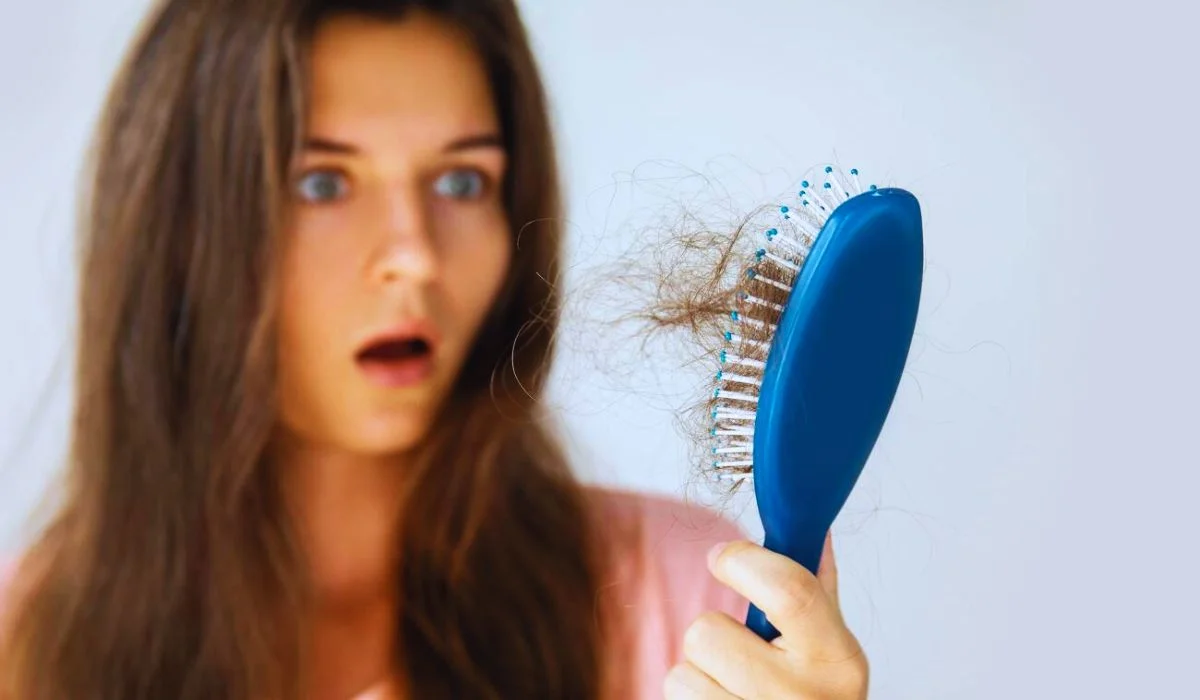Hair loss after weight loss is a common concern. To understand it better, let’s look at causes, risks, and prevention.
Stress and nutrient deficiencies are two possible causes. Stress leads to telogen effluvium, where hair follicles enter a resting phase and shed. Nutrient deficiencies from rapid weight loss can also harm follicles.
To prevent or lessen hair loss, make mindful choices. Eat a balanced diet with proteins, fruits, veggies, and whole grains. Use gentle shampoos and avoid heat-style tools. Consider consulting a healthcare professional or dietitian before starting a weight-loss program, to get the right nutrients.
What Are The Causes Of Hair Loss After Weight Loss?
Hair loss after weight loss is common. Nutritional deficiencies, rapid weight loss, and hormonal imbalances can cause it. These disrupt the hair growth cycle and cause shedding.

Nutrition is key. With weight loss, the body may not get enough vitamins and minerals. This affects hair health and makes it thin or shed.
Rapid weight loss shocks the body and can lead to telogen effluvium. This causes more shedding for months.
Weight loss can also cause hormonal changes. These disrupt the natural hair growth cycle and cause thinning or loss.
Risks And Potential Complications
Weight loss can bring risks and complications. It’s essential to be aware of them and minimize any potential negative effects. In this section, we will discuss some of the risks and complications linked to hair loss after weight loss.
Let’s take a look at the following table:
| Complication | Percentage |
| Hormonal Imbalance | 40% |
| Nutritional Deficiencies | 25% |
| Rapid Weight Loss | 20% |
| Telogen Effluvium | 15% |
Hormonal imbalance is one of the main causes of hair loss after weight loss. It affects around 40% of individuals. Nutritional deficiencies also play a role. About 25% of people suffer from hair loss due to a lack of essential nutrients.
Rapid weight loss can contribute to hair loss too. Losing weight too quickly shocks your system, leading to increased shedding. This is called telogen effluvium and affects around 15% of people who lose a lot of weight.
Prevention And Management Strategies
- Moisturize your scalp regularly to keep it healthy and prevent hair loss. Use gentle hair care products to avoid further damage.
- To prevent hair loss, focus on a balanced diet with proteins, vitamins (especially biotin), and minerals like iron and zinc.
- Manage weight loss at a moderate pace. This allows your body to adjust and reduce the risk of telogen effluvium.
- Stress can also lead to hair loss. Try to manage stress effectively.
- Finally, talk to a healthcare professional. They can give personalized advice and help make a plan to reduce hair loss.
Pro Tip: Consistency is the key to preventing and managing hair loss after weight loss. Follow a healthy lifestyle and practice good hair care habits for lasting results.
Conclusion
Weight loss can come with the risk of hair loss. This is normal. Factors such as nutrient deficiencies and hormonal changes can be attributed to it.
A balanced diet and adequate nutrient intake are important to address these issues. Plus, staying healthy, managing stress, and avoiding extreme weight loss can help prevent excessive shedding. Hair health is just as important as overall well-being.
Our hair can be affected by weight loss. Rapid weight loss or lack of essential nutrients can throw our bodies into survival mode.
This can weaken hair strands and cause more shedding. Hormonal changes due to weight loss can also affect hair growth. Estrogen levels decrease, disrupting the growth cycle and causing more shedding.
To prevent or reduce hair loss, having a balanced diet is key. This should include enough protein, vitamins, and minerals. Biotin, iron, zinc, and omega-3 fatty acids are particularly helpful for promoting healthy hair.
Stress management is also essential. Stress can disrupt the growth cycle and cause hair loss. Exercise, meditation, and being with loved ones can help with this.
Studies show that rapid weight loss can cause telogen effluvium. This is characterized by excessive hair shedding. It is best to take a gradual and sustainable approach to weight loss to minimize the risk of hair loss. There is lot of weight loss supplements in the market that gives gradual weight loss.

